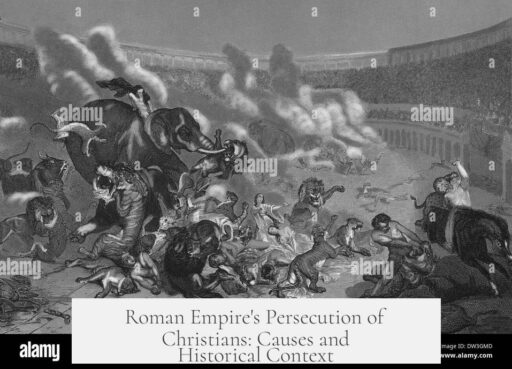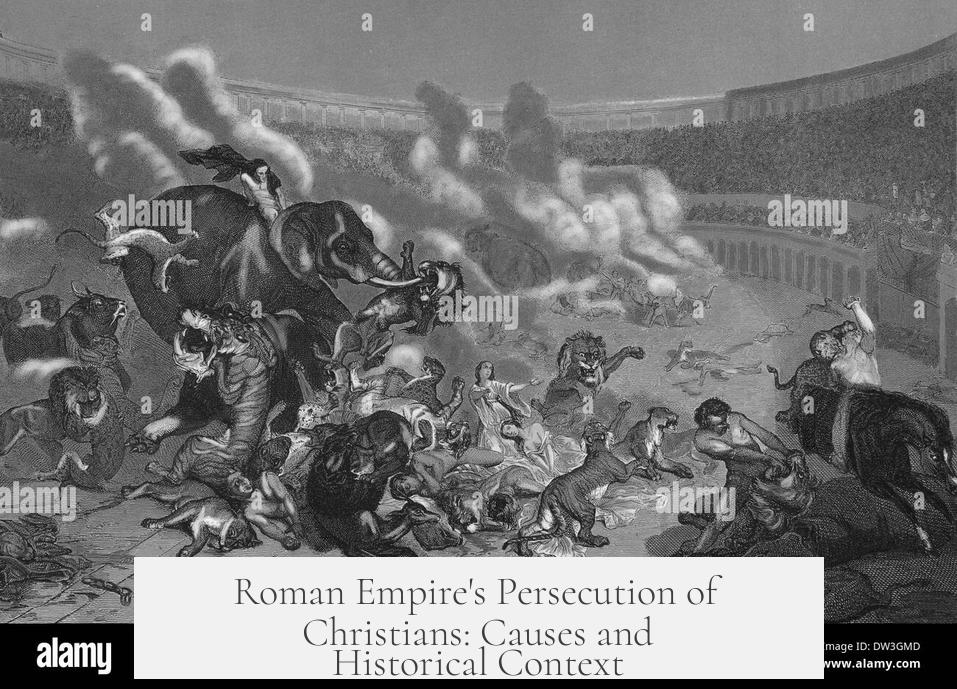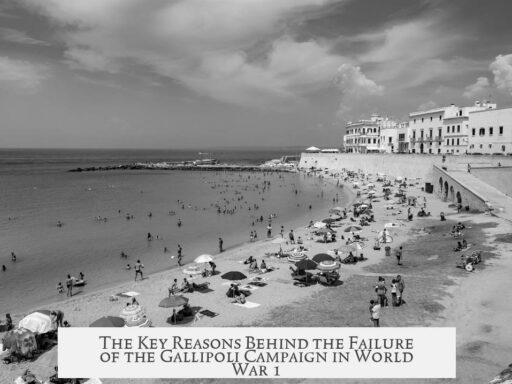The Roman Empire persecuted Christians at various points in its history because Christians disrupted traditional religious practices, challenged the social order, refused to participate in emperor worship, and were seen as threats to Roman identity during times of crisis.
The Roman Empire generally tolerated diverse religions within its territories. It absorbed many gods from conquered peoples. For example, the Egyptian goddess Isis joined the Roman pantheon. Most religions remained polytheistic, which suited Roman values. The main expectation was loyalty to the emperor, who was worshiped as a god alongside others. This polytheistic inclusion made emperor worship manageable for most subjects.
Christians, however, held to strict monotheism. They acknowledged only one God and rejected the emperor’s divinity. This refusal was perceived as a direct affront to Roman authority and religion. Worshiping the emperor was not just expected; it was a civic duty and a sign of loyalty. By denying this, Christians appeared treasonous to Roman officials.
Additionally, Christians did not take part in public religious ceremonies. These gatherings were vital for community cohesion. To Romans, the Christians’ absence was suspicious. Anti-Christian propaganda exaggerated Christian practices like the Eucharist, falsely portraying them as cannibalism. These misunderstandings increased fear and mistrust.
The social impact of Christianity also unsettled Rome. Christians initially consisted largely of slaves, the poor, and marginalized groups. They formed close-knit, secretive communities. Their values often conflicted with traditional Roman norms, which were built around social hierarchy and public loyalty rituals. Authorities saw this new sect as socially disruptive.
Historical incidents show different motivations behind persecutions. Emperor Nero’s persecution in the first century stemmed from opportunistic scapegoating. After the great fire of Rome, Nero blamed Christians to divert blame from himself. This persecution was limited but set a precedent for future tensions.
More systematic persecutions happened during times of crisis. Emperor Decius, ruling in the mid-3rd century, launched a major campaign. His empire faced external threats and internal instability. Decius sought to restore Roman unity by enforcing traditional religious practices. He required public sacrifices to Roman gods and the emperor. Christians who refused faced torture and execution. This policy aimed to reassert a Roman identity and reestablish divine favor over the empire.
Later, Emperor Diocletian continued similar policies. His persecution in the late 3rd and early 4th centuries targeted Christians for refusing to conform. Both emperors linked religious conformity to political loyalty and social stability. The strategy was to strengthen Roman values by defining Christianity as an enemy to those values.
The perception of Christians as agitators fed into fear. Roman elites worried about slave revolts and social upheaval. Christians’ secretive gatherings and refusal to participate in state rituals raised suspicions. This fear led to periodic crackdowns. Jews faced similar treatment due to their monotheism and resistance to Roman rule, which sometimes sparked open rebellion. Christians, lacking a state or established cultural power, remained vulnerable and isolated.
| Reason for Persecution | Description |
|---|---|
| Religious Conflict | Christian monotheism clashed with emperor worship and polytheism. |
| Social Disruption | Christians formed secret communities challenging traditional social hierarchies. |
| Political Loyalty | Refusal to worship emperor seen as treason and disloyalty. |
| Scapegoating | Emperors like Nero blamed Christians for crises (e.g., great fire of Rome). |
| Identity Reinforcement | Emperors like Decius used persecution to encourage traditional Roman values during instability. |
In summary, Roman persecution of Christians stemmed from intertwined religious, social, and political concerns. Christians’ rejection of emperor worship and public rituals marked them as outsiders and potential threats. Their growth during times of imperial crisis made them convenient targets. Emperors used persecution to enforce unity, restore traditional values, and prevent social disorder.
- Christian monotheism rejected emperor divinity, conflicting with Roman expectations.
- Christians’ secretive behavior and refusal to join public rites caused suspicion.
- Persecutions often intensified during crises to reinforce loyalty and Roman identity.
- Christians were scapegoated for problems like the great fire of Rome under Nero.
- Persecution served to preserve social order and traditional religious practices.
Why Did the Roman Empire Persecute Christians at Various Points in Its History?
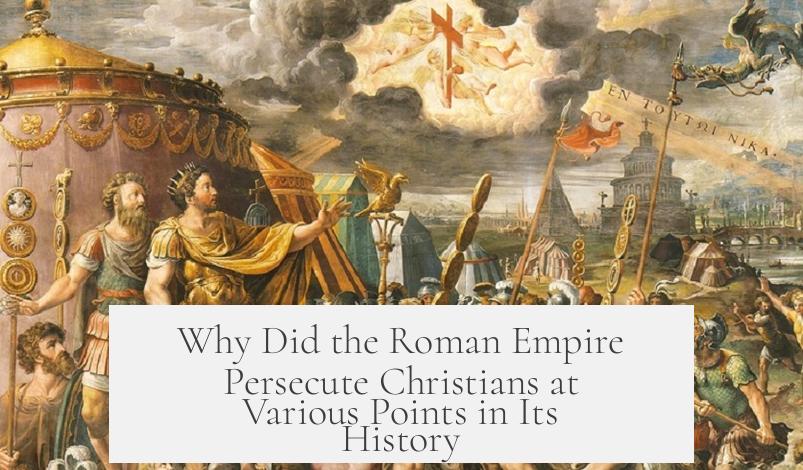
The Roman Empire persecuted Christians mainly because they challenged the social, religious, and political order vital to Rome’s stability and identity. This statement sums up a complex history that unfolded over centuries. But why exactly did this religious group become such prime targets? Let’s unravel this with some specific examples and insights.
Imagine for a moment living in ancient Rome. The Empire is vast, diverse, and always balancing on the edge between order and chaos. Into this mix comes a tiny but growing sect that refuses to play by the rules. Sounds like trouble, right?
Opportunistic Scapegoating: Nero’s Blame Game
Perhaps the earliest well-known persecution occurred under Emperor Nero. After the great fire of Rome in 64 AD, the city burned for days, and chaos reigned. Nero needed someone to blame. Enter Christians—a small, misunderstood group who already aroused suspicion. So Nero targeted them as scapegoats, blaming them for the disaster. This persecution, while brutal, was relatively limited in scope.
This incident sets the tone: Christians were convenient pawns when the Empire faced crises.
The Crisis and the Quest for Roman Identity
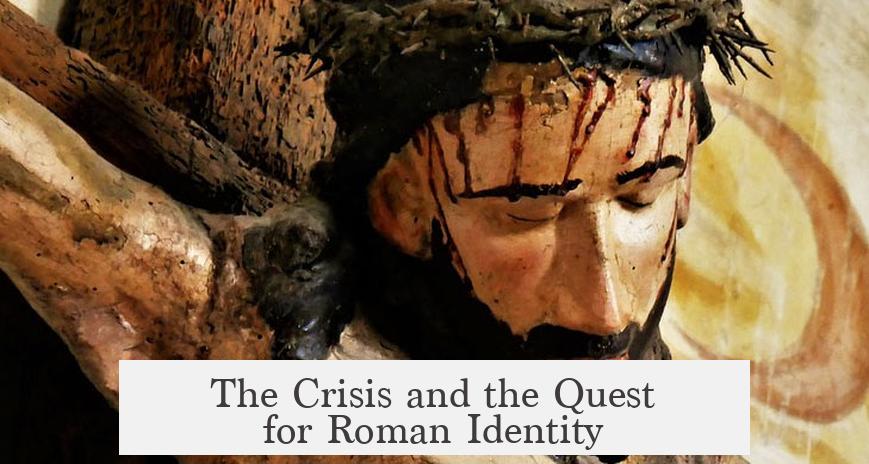
Fast forward to the reigns of Decius and Diocletian, two emperors who faced serious crises threatening the Empire’s stability. Their solution? Reinforce what it meant to be “Roman.”
- Decius’ Persecution: Around 250 AD, Emperor Decius launched an empire-wide crackdown. His goal wasn’t mere cruelty; it was to force traditional religious loyalty and restore the favor of the gods. Christians, by refusing to participate in state religions or worship the emperor, were seen as dangerous dissidents. The punishment was harsh: forced renunciation, torture, or death.
- Diocletian’s Campaign: About 40 years later, Diocletian took a similar approach. He aimed to revive Roman values amid turbulence, continuing the suppression of Christians under the guise of protecting tradition.
Both emperors used persecution as a tool to strengthen Roman identity—not with gentle persuasion but with forceful exclusion.
Disrupting the Social Order
Why were Christians so threatening? Simply put, they disrupted the social order. Christians rejected many civic customs that bound Roman society together—especially participation in polytheistic rituals and emperor worship.
This wasn’t unique to Christians. Jews also faced persecution for similar reasons. Both communities were seen as clannish and separate, ignoring the social glue of festivals and sacrifices that unified Roman citizens.
Monotheism Clashes with Polytheism and Emperor Worship
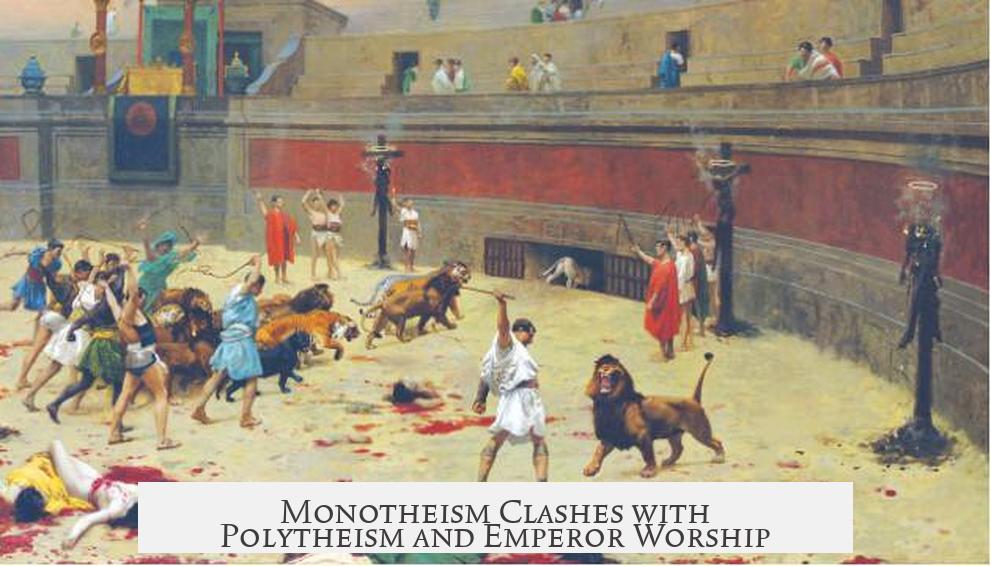
Here’s a key twist. Rome was remarkably tolerant religiously, but with a critical condition: you must honor the Emperor as a god. For most polytheistic groups, this was no big deal—one more god among many.
Not so for Christians. Their monotheism forbade worshiping any entity but their one God. To honor Caesar as god was sacrilege. This defiance wasn’t just religious dissent; it was political rebellion in the eyes of Rome.
Unlike the Jews, who had their own state and engaged in periodic open rebellion, early Christians had no such backing. They formed secretive communities, often made up of slaves and the poor. This secretiveness only fueled suspicion.
The Roman View: Agitators and Malcontents
Romans had no high opinion of these groups. Jews were seen as stubborn and insular; Christians were viewed as troublemakers—agitating underclasses who challenged authority.
The Roman elite lived with the constant fear of revolt from slaves or the poor. Seeing Christians as agitators made persecution a practical, if grim, method of quelling unrest.
Why Romans Saw Christians’ Actions as Treason
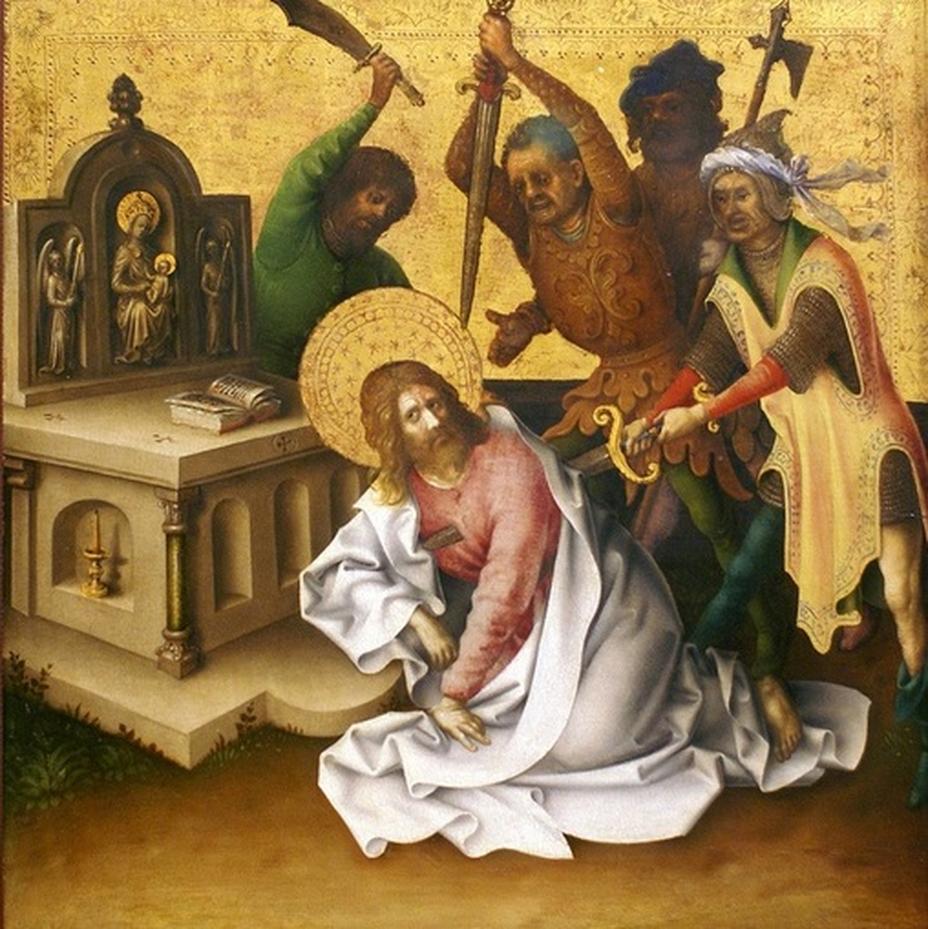
What really set Christians apart was their refusal to participate in emperor worship. To Romans, the emperor was divine, a living god embodying the state’s power and unity. Not worshiping him was tantamount to treason.
Additionally, Christians’ private rituals, especially the Eucharist, were misunderstood. Rumors claimed they engaged in secret cannibalism—an accusation that intensified hostility.
What Can We Learn from This History?
The Roman persecution of Christians wasn’t arbitrary cruelty. It was deeply tied to how the Empire maintained control and identity. When Rome faced threats—internal rebellions, external enemies, or social upheaval—Christians became perfect targets.
Persecution was more about politics and power than religion alone. It was easier for emperors to blame a minority sect than address broader social problems.
Interestingly, this persecution eventually backfired. Christian resilience and growth led to a profound transformation of the Empire itself. By the 4th century, Emperor Constantine embraced Christianity, eventually making it the state religion.
Final Thoughts
So, why did the Roman Empire persecute Christians? Because their beliefs and practices disrupted the social fabric, challenged the emperor’s divine status, and threatened traditional Roman values. When stability or identity was at stake, Christians provided an unlucky focal point for imperial paranoia and control.
Isn’t it fascinating how religious conviction, social order, and political power intertwined—and how this dynamic shaped history? Perhaps there’s a lesson for modern times about tolerance and the dangers of scapegoating minority groups during crises.
Have you ever wondered how minorities in powerful states today face similar pressures? Or if history is repeating itself in subtler forms? The Roman experience with Christians offers a timeless case study.
